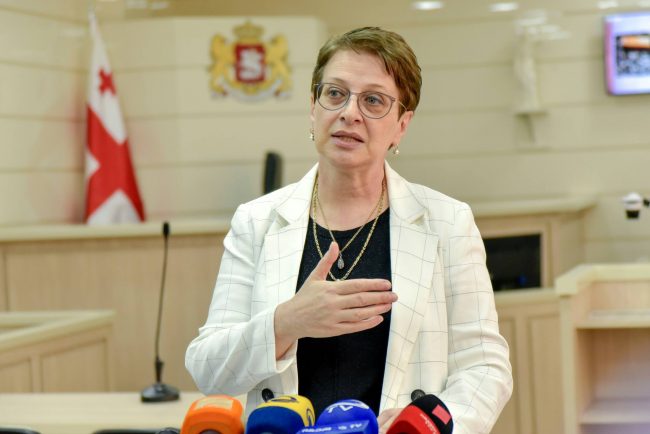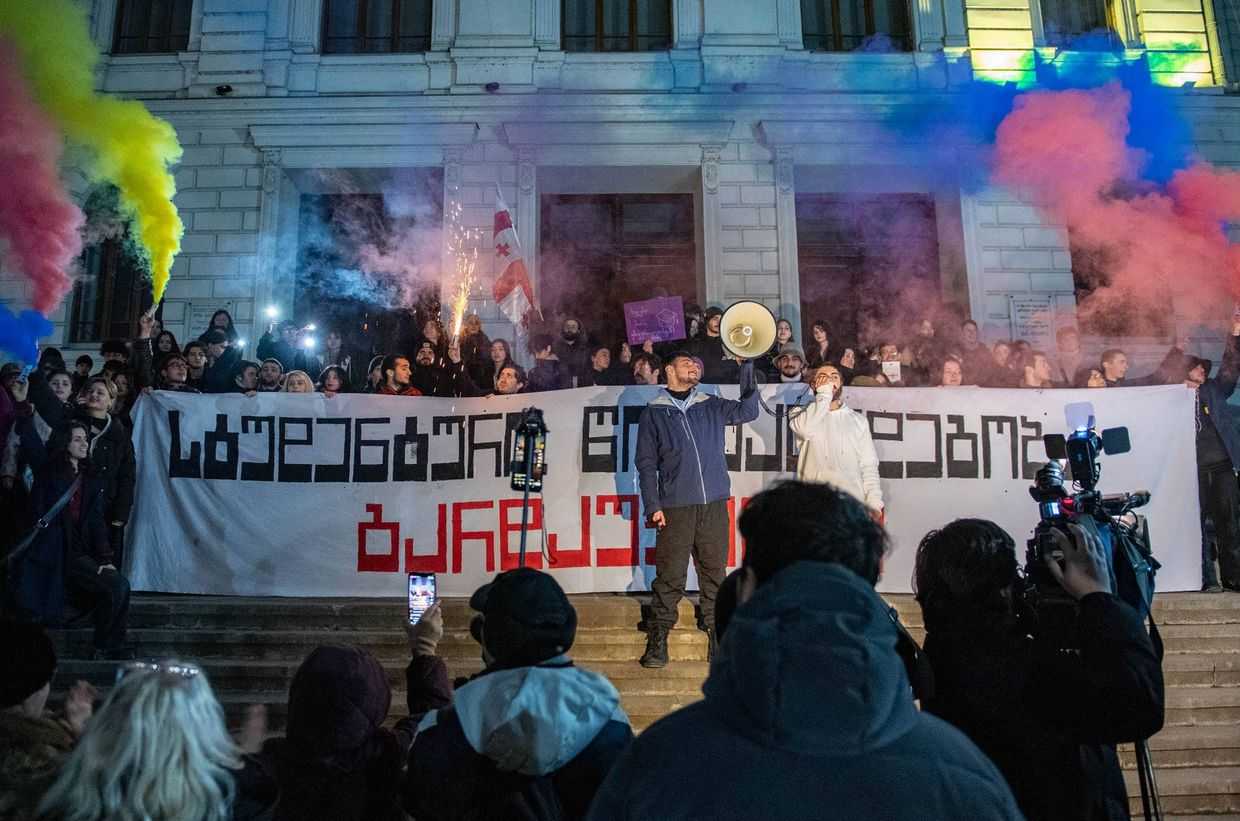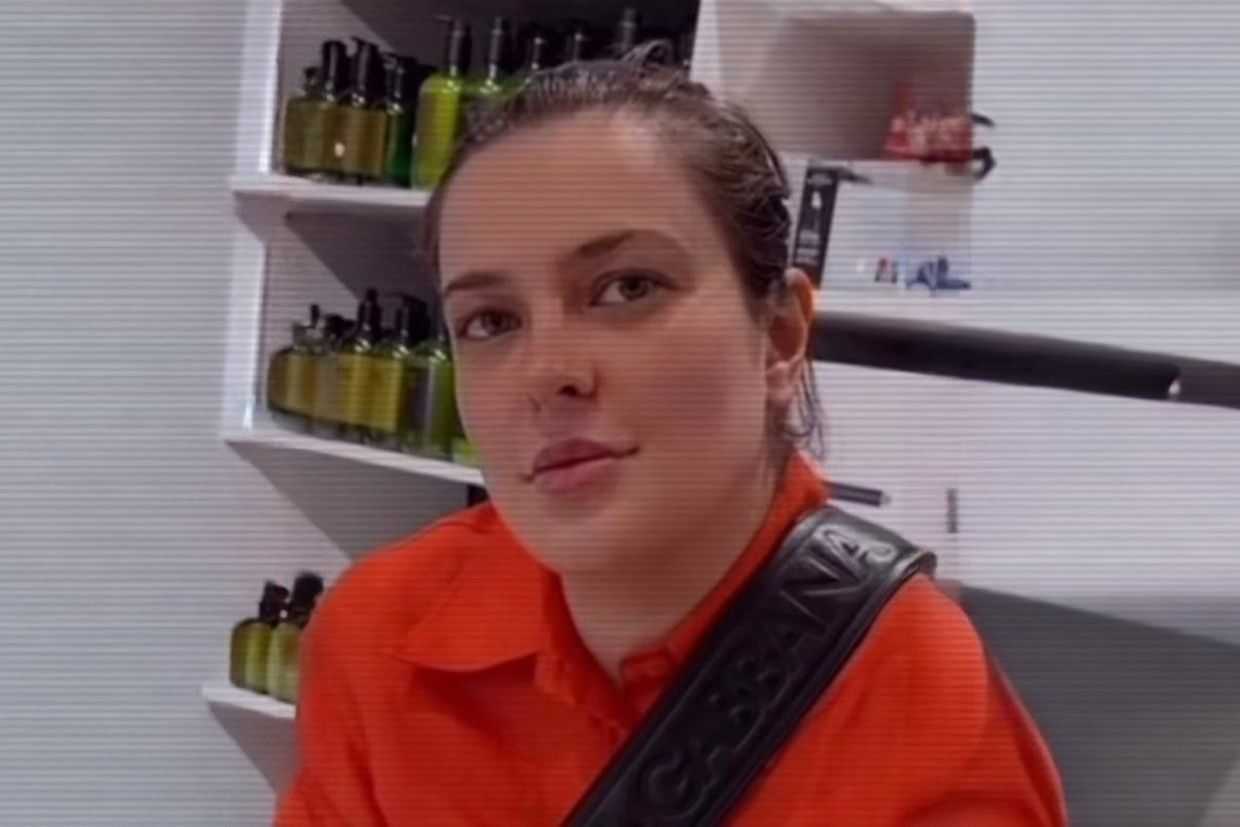

 The chairperson of the Supreme Court of Georgia, Nino Gvenetadze, has resigned for ‘health reasons’, sparking controversy about whether she was pressured to leave the post. Some officials, including Justice Minister Tea Tsulukiani, said her resignation came as a surprise. President Margvelashvili meanwhile pointed to ‘harsh conditions’ in the court system, with Gvenetadze having called herself a ‘victim of violence’ on the Georgian High Council of Justice (HCOJ).
The chairperson of the Supreme Court of Georgia, Nino Gvenetadze, has resigned for ‘health reasons’, sparking controversy about whether she was pressured to leave the post. Some officials, including Justice Minister Tea Tsulukiani, said her resignation came as a surprise. President Margvelashvili meanwhile pointed to ‘harsh conditions’ in the court system, with Gvenetadze having called herself a ‘victim of violence’ on the Georgian High Council of Justice (HCOJ).
Gvenetadze was appointed Supreme Court chairperson in March 2015. She was approved by a parliamentary majority to serve 10 years in the office, but on 2 August, three years into her term, the Supreme Court issued a statement saying that Gvenetadze was stepping down. It explained that ‘she needs treatment abroad for several months’.
In November 2017, Gvenetadze said she was a victim of ‘violence’. She made a statement before the HCOJ, stressing members of the Council were pushing her to make a decision she didn’t agree with. There were several controversial topics on the agenda that day, including the lifetime appointment of 34 judges and the approval of an extra court session.
‘I absolutely refute the possibility that her decision had anything to do with internal processes’, Tsulukiani told journalists on Thursday. She said the resignation came as a surprise and had no further information about Gvenetadze’s motivations.
Advisor to the Prime Minister, Sozar Subari, also commented on the resignation, calling it unexpected. He said Gvenetadze had spoken several months ago about the ‘discomfort and pressure against her’ on the Georgian High Council of Justice, but added ‘it’s unlikely this would be the reason’ for her departure.
President Giorgi Margvelashvili also underlined tensions in the HCOJ, saying ‘the most important part of Gvenetadze’s statement is that she was a victim of violence’.
‘Her resignation is even tougher considering the developments that came before it. Several judges and non-judge members of the HCOJ have spoken of the harsh conditions in the judiciary system’, said Margvelashvili on 2 July.
Controversies in the HCOJ
The HCOJ is an independent organ, created to coordinate an independent and effective judiciary. Its competences include the appointment and dismissal of judges.
A recent study by Transparency International Georgia suggested that within the HCOJ, a dominant group of judges ‘influences [other] judges, which in turn increases opportunities for corruption’. Several members of the Council, including Ana Dolidze and Nazi Janezashvili, have been critical of the system, referring particularly to this ‘dominant group’.
Dolidze, a non-judge member of the Council, said Gvenetadze’s decision to resign ‘is a diagnosis of the harsh conditions in the court’.
‘Dominant groups in the court and their influences, Georgian Dream’s refusal to pass real judicial reforms, and other questionable decisions created grounds that required an inhuman power to cope with’, said Dolidze.
Another non-judge member of the council, Nazi Janezashvili, said Gvenetadze’s resignation must be ‘an alarming call to everyone, proving there’s a really difficult situation in the system that needs to be addressed’, said Janezashvili.
Transparency International’s study on the Corruption Risks in Georgian Judiciary names several judges who allegedly belong to the ‘dominant group’.
‘Members of the dominant group of judges are considered to include: Mikheil Chinchaladze, Irakli Shengelia, Levan Murusidze, Giorgi Mikautadze, Dimitri Gvritishvili, Levan Tevzadze, Vasil Mshvenieradze, Sergo Metopishvili, Shota Getsadze, and Davit Mamiseishvili’, the study said.
Two of the judges from the list commented on Gvenetadze’s resignation, excluding the possibility she stepped down due to tensions.
‘Gvenetadze mentioned violence in November. Her statement was emotional, so if there was pressure, logically she would have stepped down then’, said Dimitri Gvritishvili.
Giorgi Mikautadze, another member of the ‘dominant group’ and the secretary of the HCOJ, said ‘there is an attempt to put these processes into a political dimension’.
‘This is not true. We had different opinions regarding certain topics, but our visions have lately been as close as possible’, said Mikautadze, who will act as chairperson until Gvenetadze’s successor is appointed.
Gvenetadze’s successor
After Gvenetadze’s resignation, several prominent non-governmental organisations, including the Georgian Young Lawyers’ Association and the Human Rights Education and Monitoring Centre, issued a statement calling on the President to name her successor as soon as possible.
‘Despite her insufficient reactions to problems in the system during her three years in office, confrontation between her and the group of influential judges was still abundantly clear’, said the statement.
Currently, the president has the capacity to present a candidate for chairperson of the Supreme Court. The candidate is then voted on and appointed by parliament. This rule is to change, however, once amendments to the Georgian constitution enter into force, as soon as the next president is sworn in.
‘After enforcement, the authority to present a candidate will be delegated to the HCOJ, which dramatically increases the risk of a higher concentration of power in the hands of influential judges and higher reclusiveness of the court system’, said the organisations’ statement.
In a speech on 2 July, president Margvelashvili said he would begin consultations on Monday regarding a new candidate for the office. He said his pick must be ‘capable of coping with the challenges of the current system’.
‘Gvenetadze’s resignation laid bare the system our friends and partners have been warning about. These developments showed once again the need for healthier system’, said Margvelashvili.









